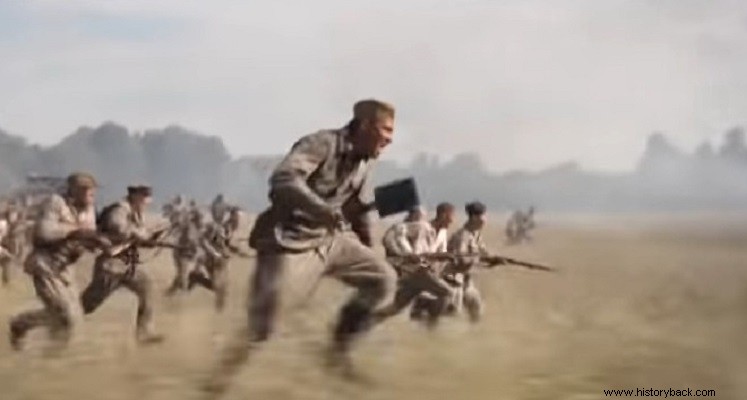
The 75th anniversary of the Soviet victory over Nazi Germany in World War II will be celebrated on Wednesday, June 24, with thousands of soldiers marching in Red Square despite the COVID-19 outbreak. The Soviet victory is celebrated on May 9, a national holiday in Russia, and is an opportunity to express national pride in the decisive participation of the Red Army, millions of Soviet soldiers, Russian and non-Russian, in World War II and the terrible losses on the fields of the battles that decided the outcome of the war
This year, the national holiday was moved due to the epidemic. The Soviet Union recorded the heaviest toll in the war. However, the repression within the Soviet Union itself also left behind huge losses.
7 to 27 million dead
In 1946, Stalin spoke of 7 million Soviets killed on the battlefields of the Great Patriotic War, a tally vastly understated to serve his cult of face and image as commander-in-chief. After his death, the war's death toll tripled to 20 million. His successor Nikita Khrushchev attributed the colossal losses to Stalin's incompetence. The opening of the archives on the Mikhail Gorbachev period led to a new revision:26.6 million dead, among them 12 million soldiers and 14.6 million civilians. Famine during the siege of Leningrad caused up to 1 million deaths. The Battle of Stalingrad left over 1 million dead on the Soviet side.
"Stalin's samovars"
Because of its shape, the samovar became a post-World War II expression of sarcasm to describe veterans left without limbs after fighting under Stalin's orders. The war left about 2.5 million disabled. Hundreds of thousands of them were forced, in the absence of care, to become beggars, angry with the Soviet leadership.
In 1948, the authorities begin organizing the confinement of thousands of them in abandoned monasteries converted into sanatoriums in the north of the Soviet Union. These facilities then proliferated to become involuntary detention centers for beggars, the disabled and the marginalized, people who tarnished the image of the Soviet Union. Some of these centers remained in operation through the 1970s.
Executions, desertions, cooperation
More than 2.53 million Soviets were convicted by military courts of a range of crimes, including 1.43 million deserters and insubordinates. Between 1941 and 1945, 157,593 people were executed for espionage, high treason, desertion or even defeatism. About 80 million citizens of the USSR or forcibly incorporated countries such as the Baltic countries lived under Nazi occupation. And a total of 1.24 million people served in the German army, including 400,000 Russians, 250,000 Ukrainians, 150,000 Latvians, 90,000 Estonians and 70,000 Belarusians, according to historian Viktor Gavrilov of the Military Academy of the Russian Armed Forces.
People punished
From 1941-1942, Stalin decides on the preemptive deportation of ethnic minorities suspected of being "potential collaborators", starting with the Germans of Russia, 800,000 of whom were driven from their villages along the Volga, loaded into transport wagons animals and were displaced to Kazakhstan. Followed by Finns, Greeks and others.
In 1943-1944, after pushing back the German army, Stalin began the displacement of other peoples (Chechens, Ingush, Crimean Tatars, etc.) to the inhospitable steppes of Kazakhstan, Kyrgyzstan and Siberia. About 1.2 million people are displaced in this way within a few months to the other side of the Soviet empire without means of survival.
These peoples, who were rehabilitated after Stalin's death, were accused of collaboration with the enemy, most often without evidence. For the Soviet leadership, it was the opportunity to break strong nationalist sentiments and settle populations in the vast desert lands.
SOURCE:APE-ME
